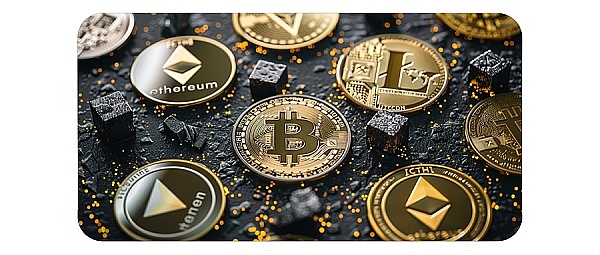Author: Daoshuo Blockchain
1. MEME itself relies on everyone's emotions. If you value the ecosystem, what is the difference between it and altcoins?
Whether the value of a token comes from emotions or from the ecosystem reflects two different value judgments:
Emotional value can only bring short-term effects, and ecological construction can produce long-term effects.
There are very few emotional values in the world that can be long-lasting and continuous.
Bitcoin is recognized as the token with the strongest emotional value and the greatest consensus in the entire crypto ecosystem. But it has experienced countless brutal bear markets and plunges from scratch to today, and it has not rushed all the way to the present.
And like Bitcoin, with its strong core value and unique narrative background, it can continuously generate emotional value, build consensus, and create new peaks from the bottom countless times. There are few in the entire crypto ecosystem.
Such a project does not need an ecosystem, it can last forever.
But what about other tokens?
If there is no ecosystem in the vast majority of cases, and only emotions are relied upon, then the probability is that we can only see how long and what effects short-term emotions can last.
How long short-term emotions can last, how strong the effects are, and how high the price of the currency can be pushed up are completely beyond my judgment.
So when I look at MEME coins, if I only see the emotional value in it and not the ecological construction, then I will only treat it as a game, as an experience to feel the community atmosphere and the resonance of values, like gambling, and I will definitely leave when the price reaches a certain height according to my own feelings, and I will not fight for it. I will not care too much about whether I make a profit or a loss, and I will not hold a heavy position.
But if I see that MEME has a strong team leading, continuously promoting its development, and promoting its ecological construction, then I will seriously think about its future prospects and potential, consider long-term holding, and will not buy and sell frequently for short-term price fluctuations.
2. Does the copycat still have a chance to rise?
If the "copycat" here refers to other coins besides Bitcoin and Ethereum, I think it depends on how the projects behind these coins develop.
If the project is continuously advancing and building, even if the token's empowerment is slightly lacking, I think there is still a chance to make a comeback---at least the price will be higher than it is now. Many DeFi projects that have been continuously building are of this type.
But if the project has not been updated or progressed for a long time, then their tokens will be in danger in the future.

3. How about the two tokens ZETA and CEL?
I don't know much about the CEL token. I have shared my views on the ZETA (ZetaChain) token in an article before: I think it is average.
However, I have seen several articles recently that mentioned ZetaChain in explaining chain abstraction. At the same time, they also mentioned another chain: Particle Network.
ZetaChain and Particle Network are both projects in the field of chain abstraction.
Chain abstraction aims to solve the problem of user experience. It can greatly improve the convenience of users using blockchain. Users no longer need to switch between chains, and can complete operations on various blockchains on a unified interface.
Comparing ZetaChain and Particle Network from the perspective of chain abstraction, I prefer Particle Network: its focus can solve the problem of chain abstraction in the Ethereum ecosystem, especially in various second-layer extensions. This is not only an urgent problem that the Ethereum ecosystem needs to solve at present, but also a problem that must be solved for Ethereum to move towards the general public in the future.
This problem is relatively easy to solve technically, and the effect is relatively faster.
Other projects that are committed to solving the abstraction problem of the main chain of each blockchain are relatively technically difficult, and the results may be relatively general.
So when I saw Zeta, I thought of Particle Network.
 JinseFinance
JinseFinance
 JinseFinance
JinseFinance JinseFinance
JinseFinance JinseFinance
JinseFinance JinseFinance
JinseFinance JinseFinance
JinseFinance JinseFinance
JinseFinance JinseFinance
JinseFinance JinseFinance
JinseFinance Nansen
Nansen Cointelegraph
Cointelegraph